How Sam Claflin got his groove on
The Hunger Games actor Sam Claflin on going full method to play fictional 70s rocker Billy Dunne in Amazon’s adaptation of Taylor Jenkins Reid’s book, Daisy Jones & The Six
By Daisy Jones
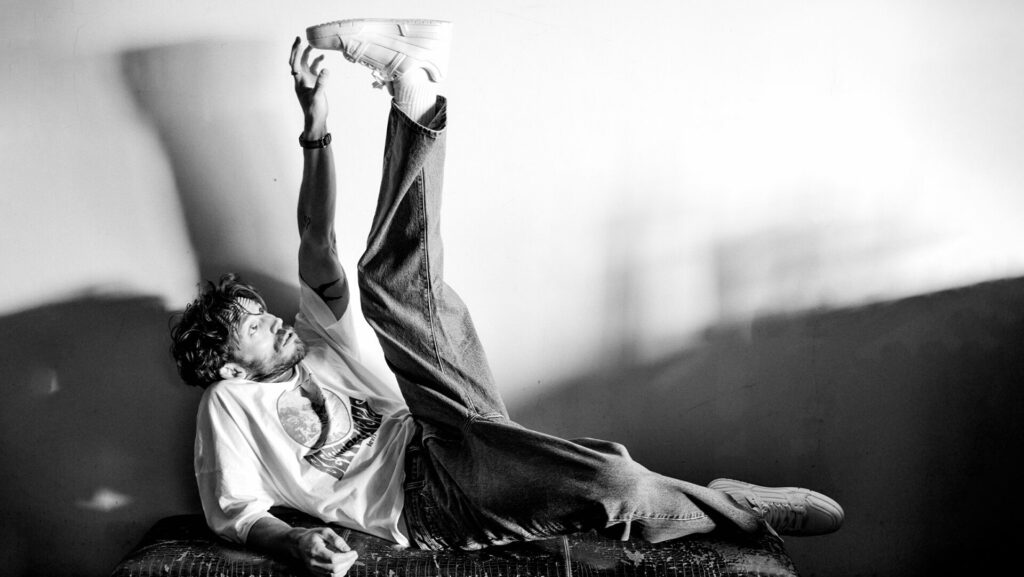
It was the spring of 1997 when Fleetwood Mac gathered at Warner Brothers Studio in Burbank, California, to play a reunion show for the history books.
It had been 20 years since their wildly successful 11th album, Rumours, and 21 years since the break-up of singer Stevie Nicks and guitarist Lindsay Buckingham, who had famously enjoyed a tempestuous and intense romantic and musical relationship.
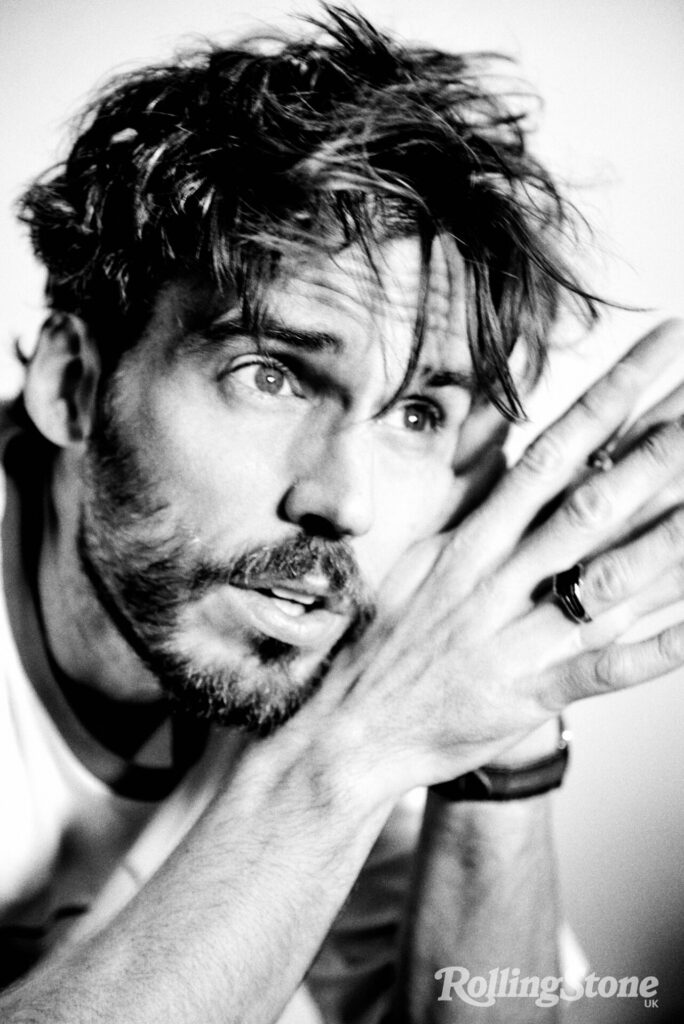
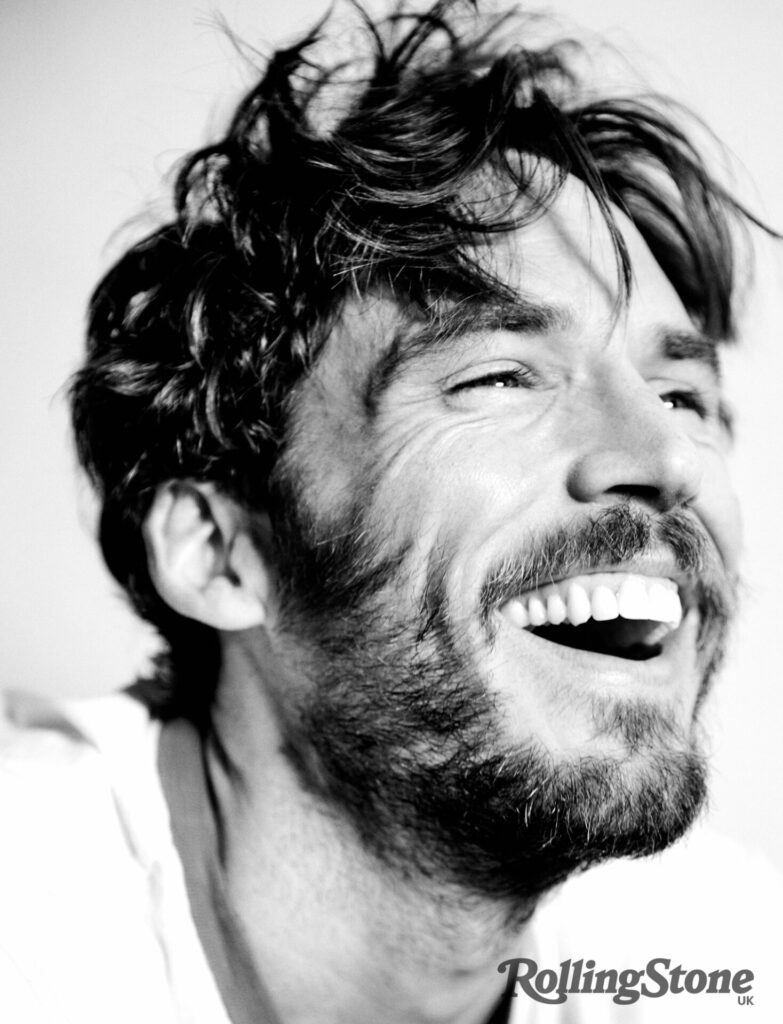
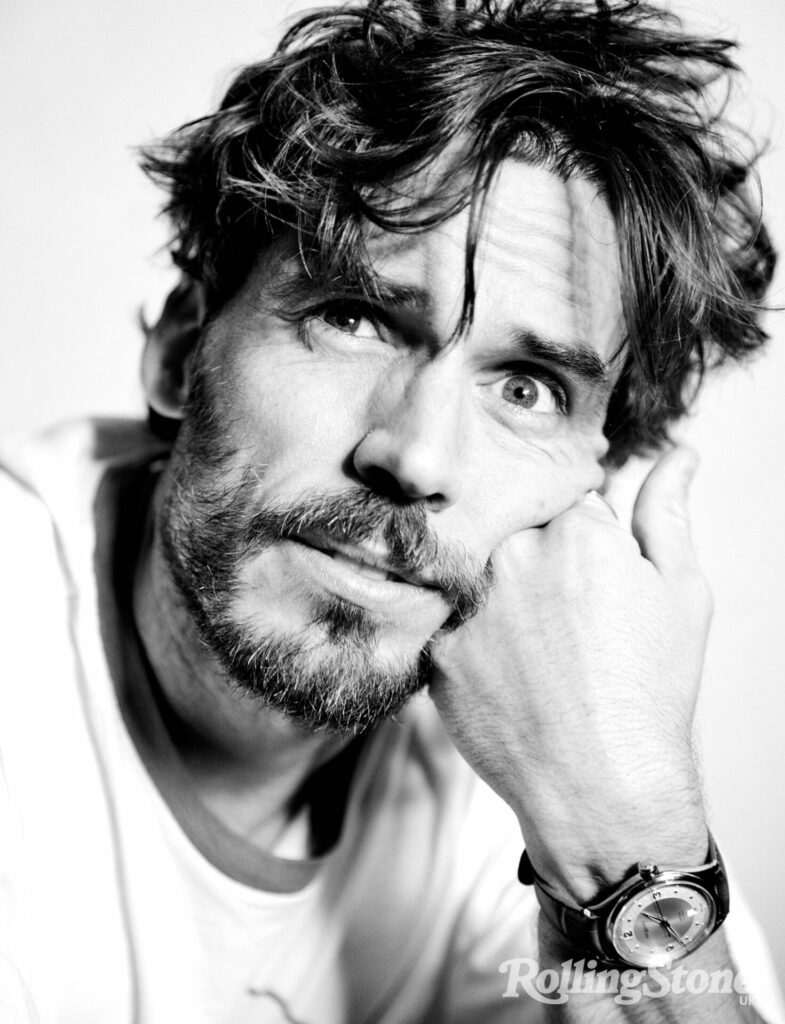
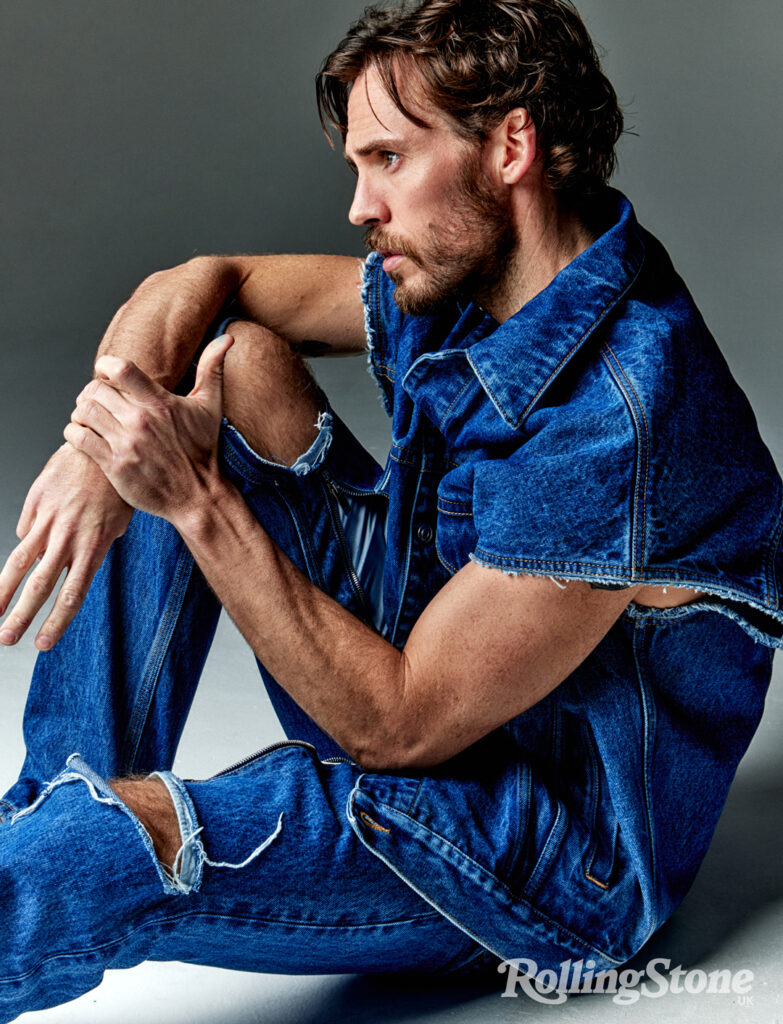
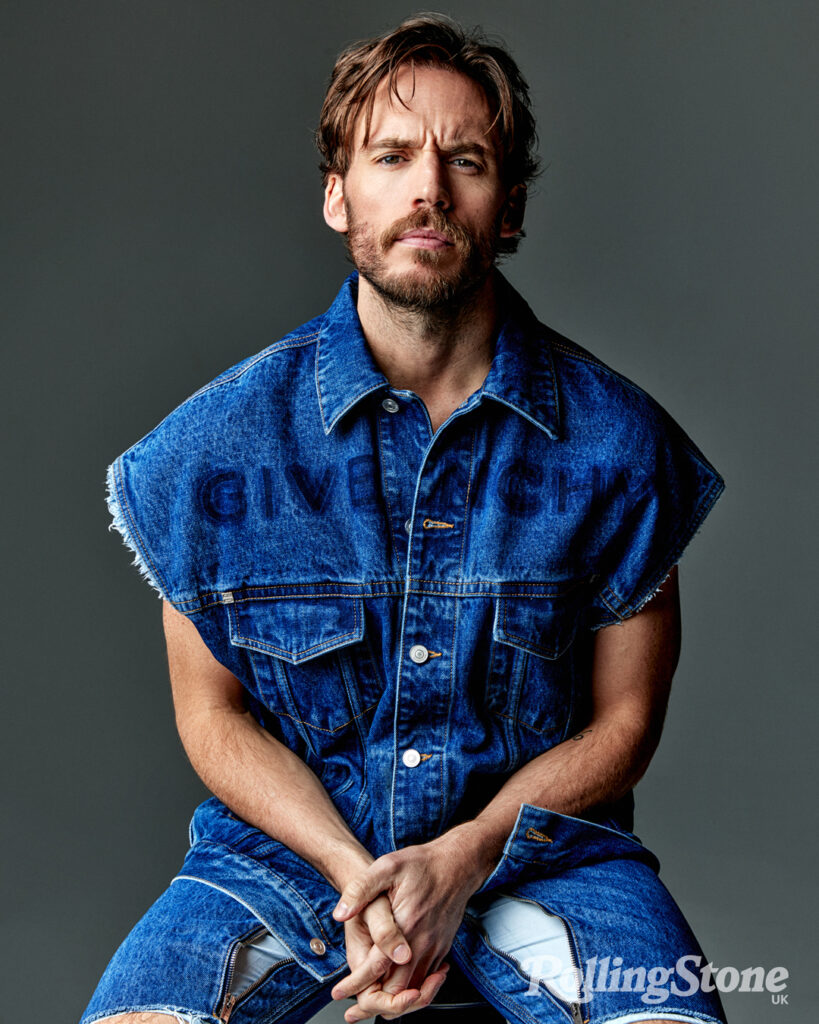
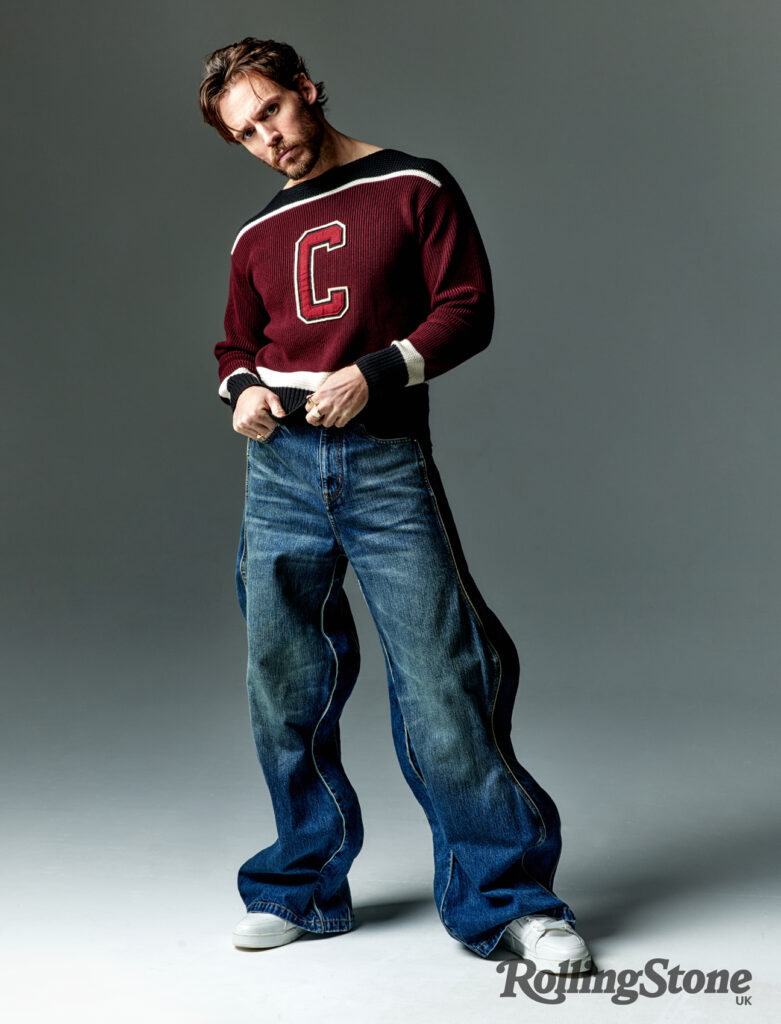
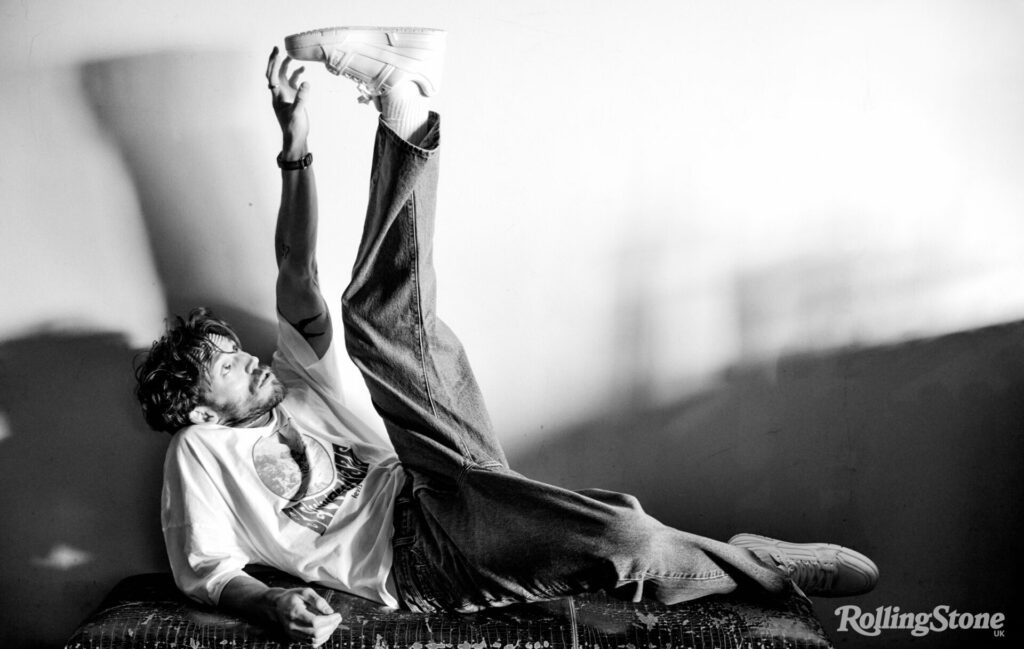
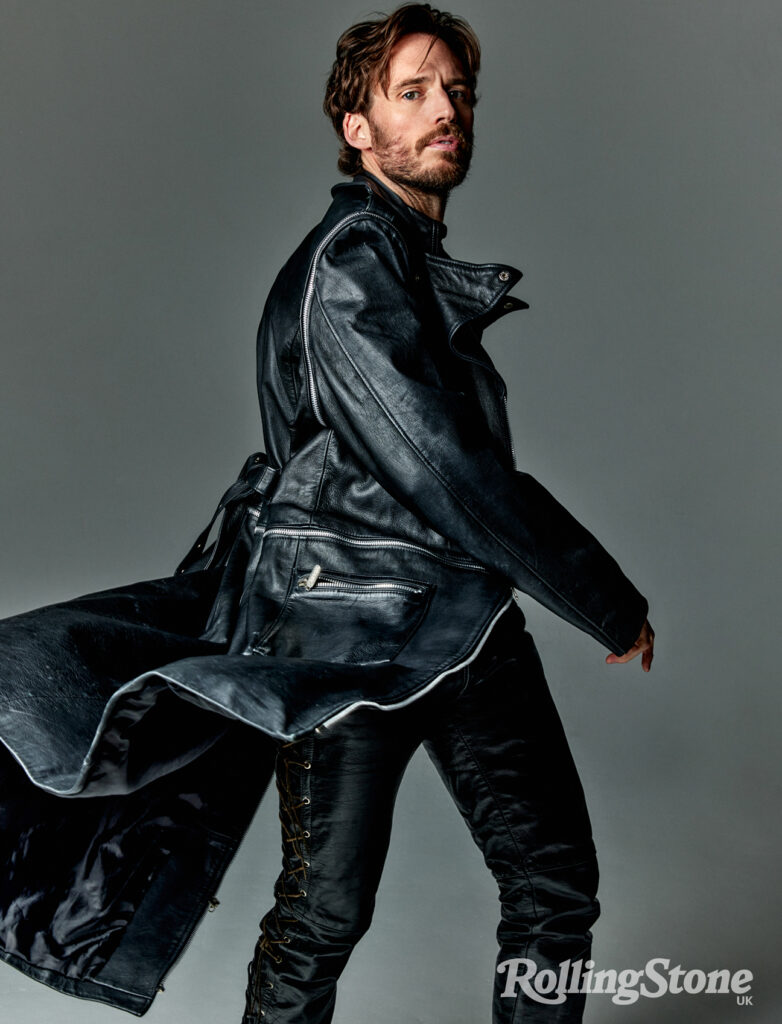
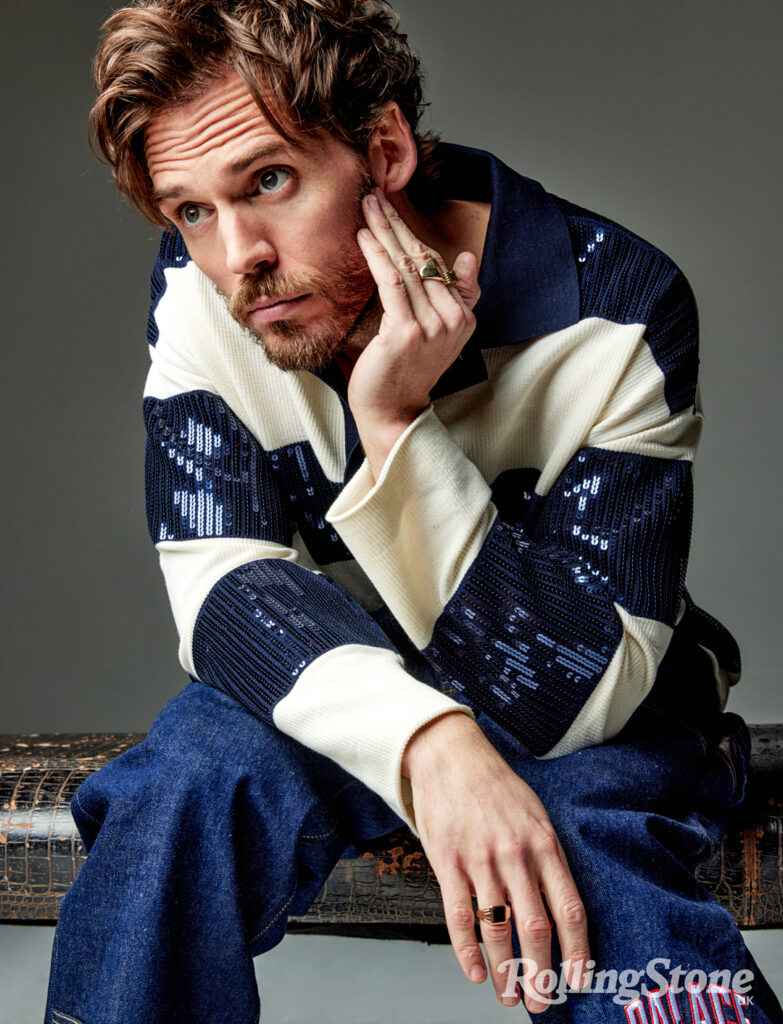
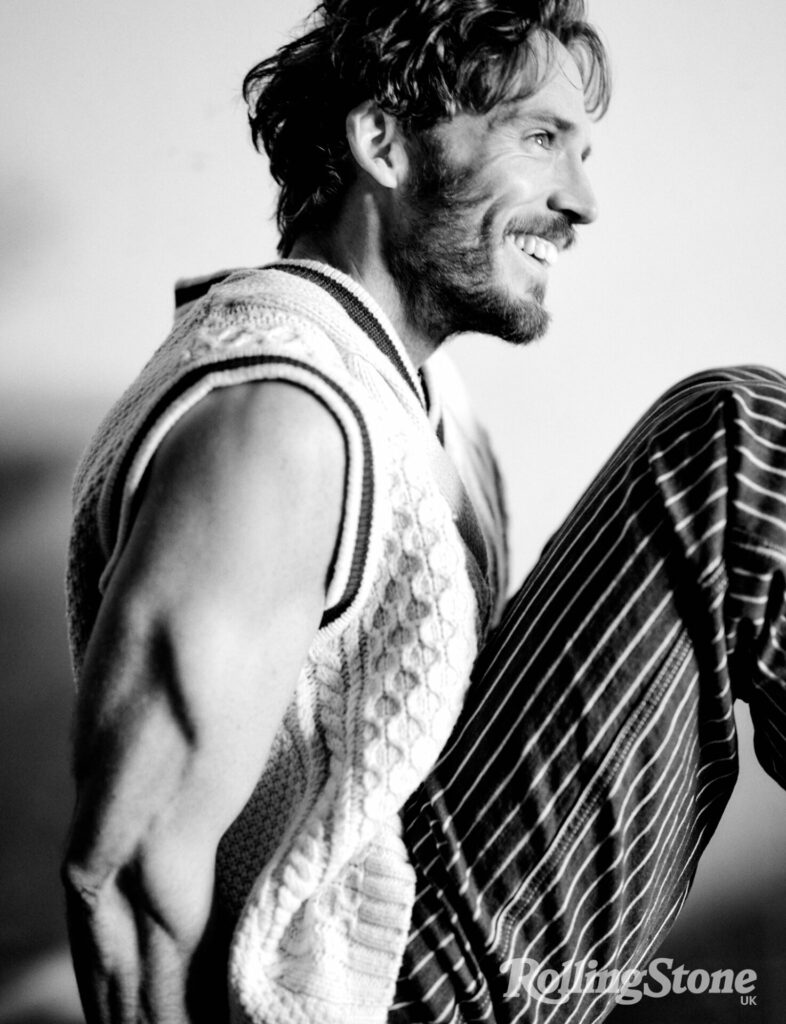
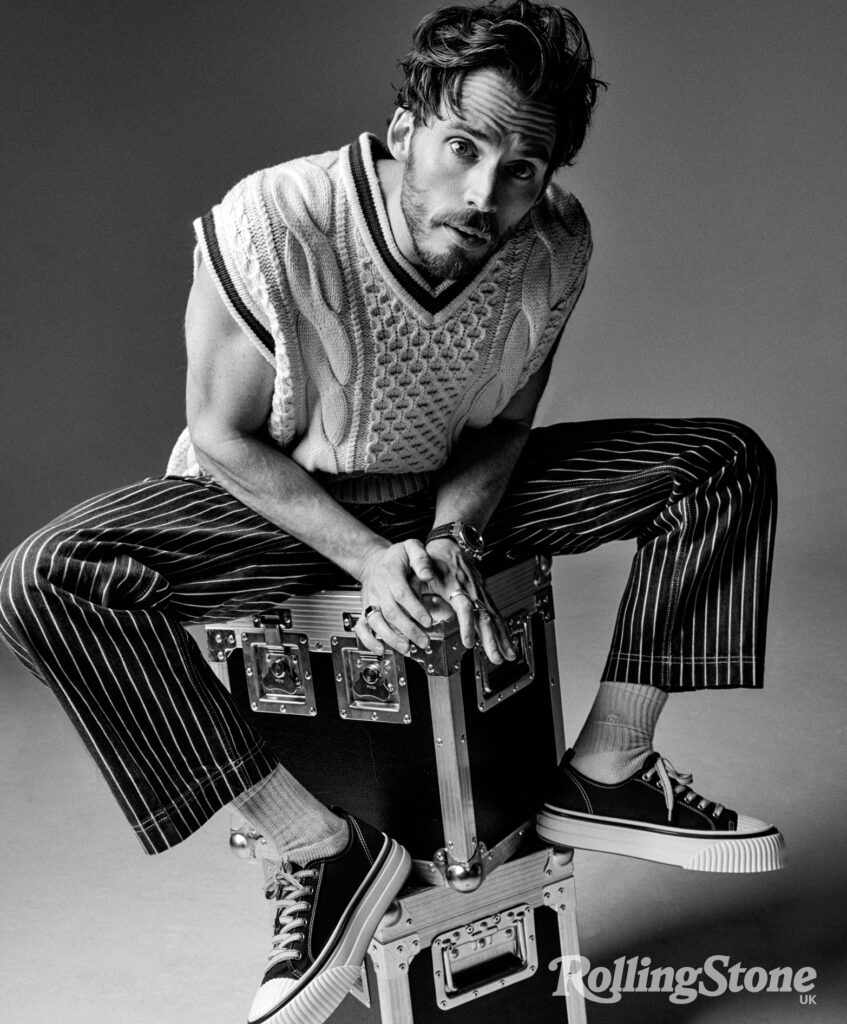
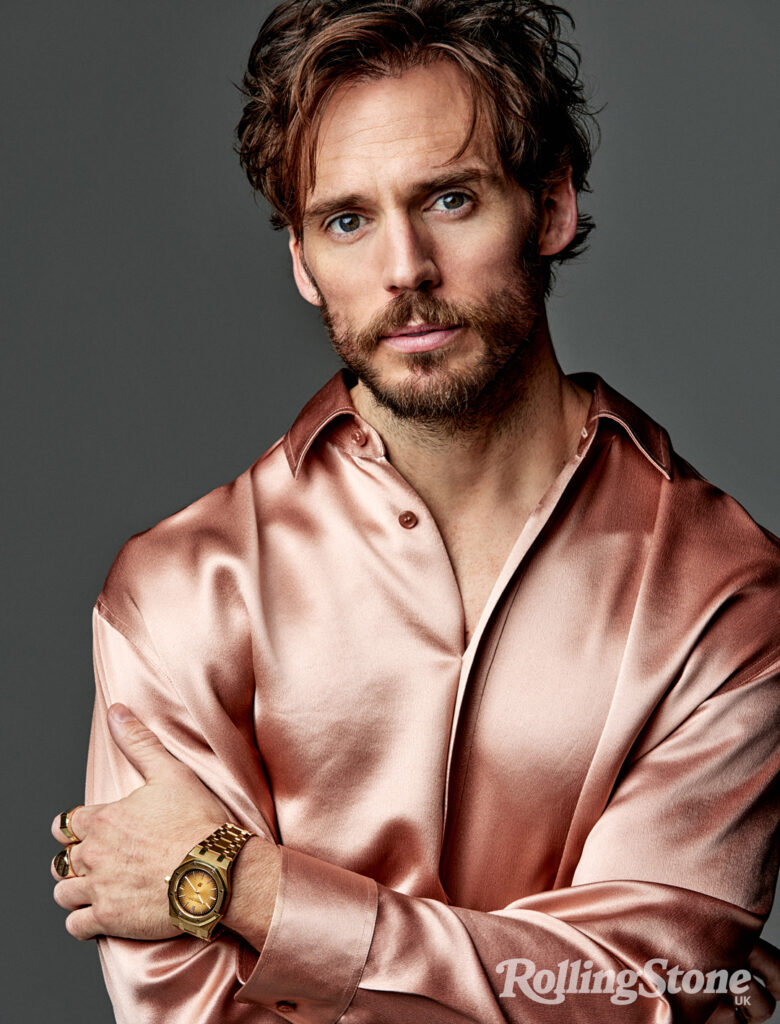
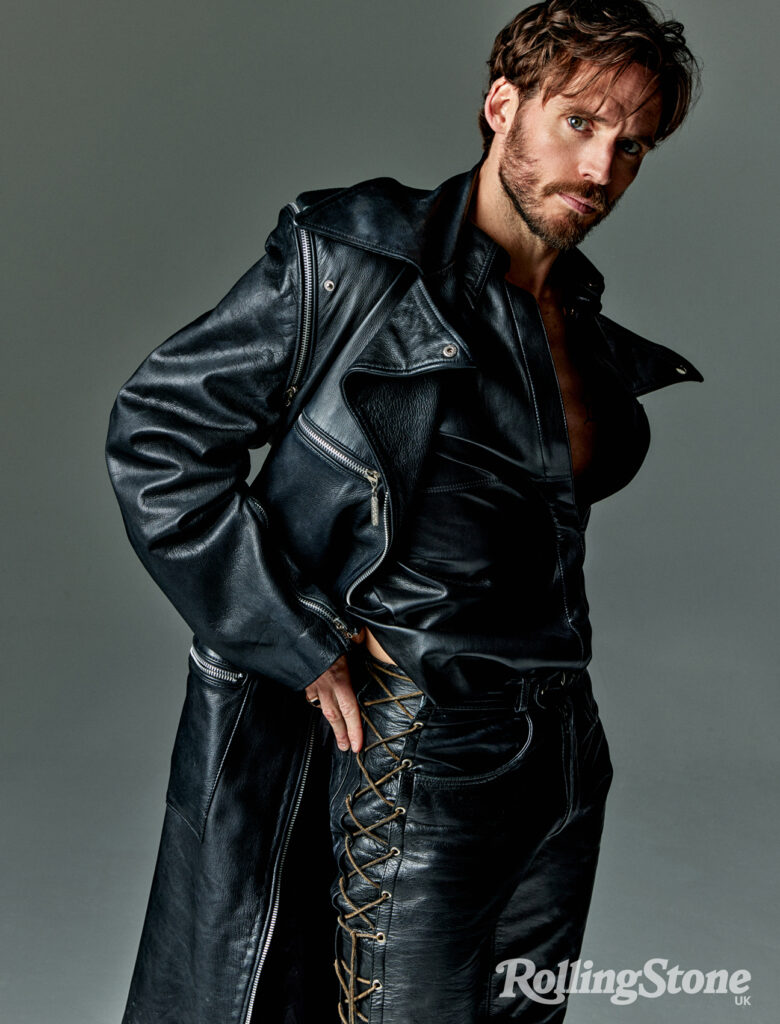
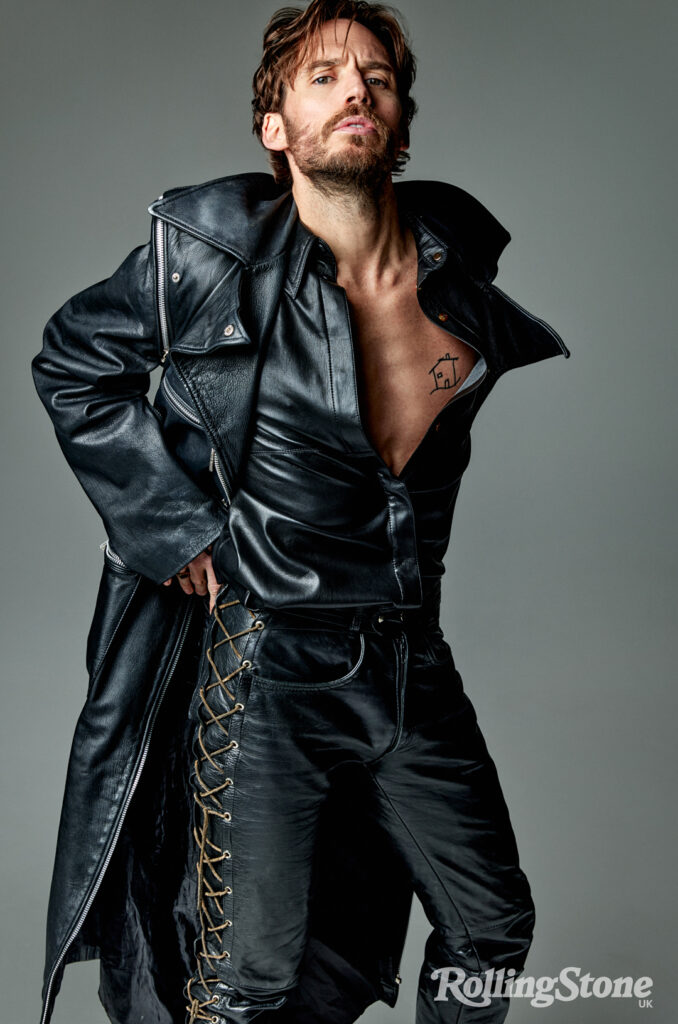
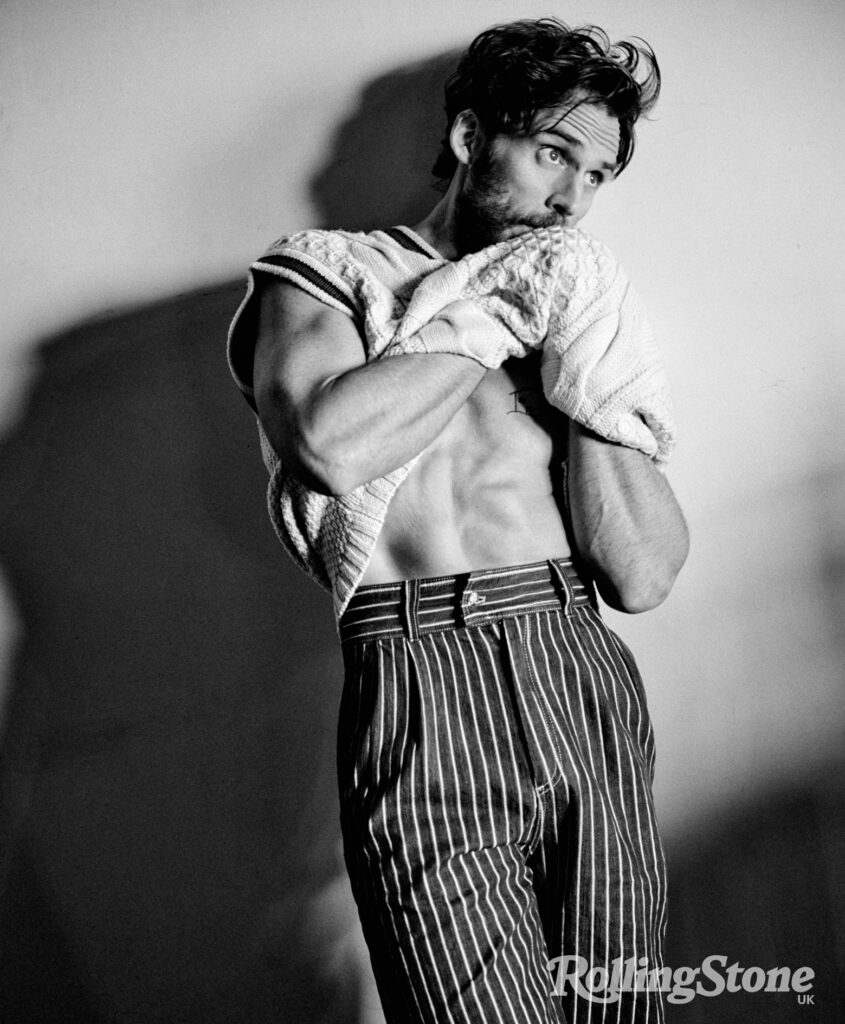
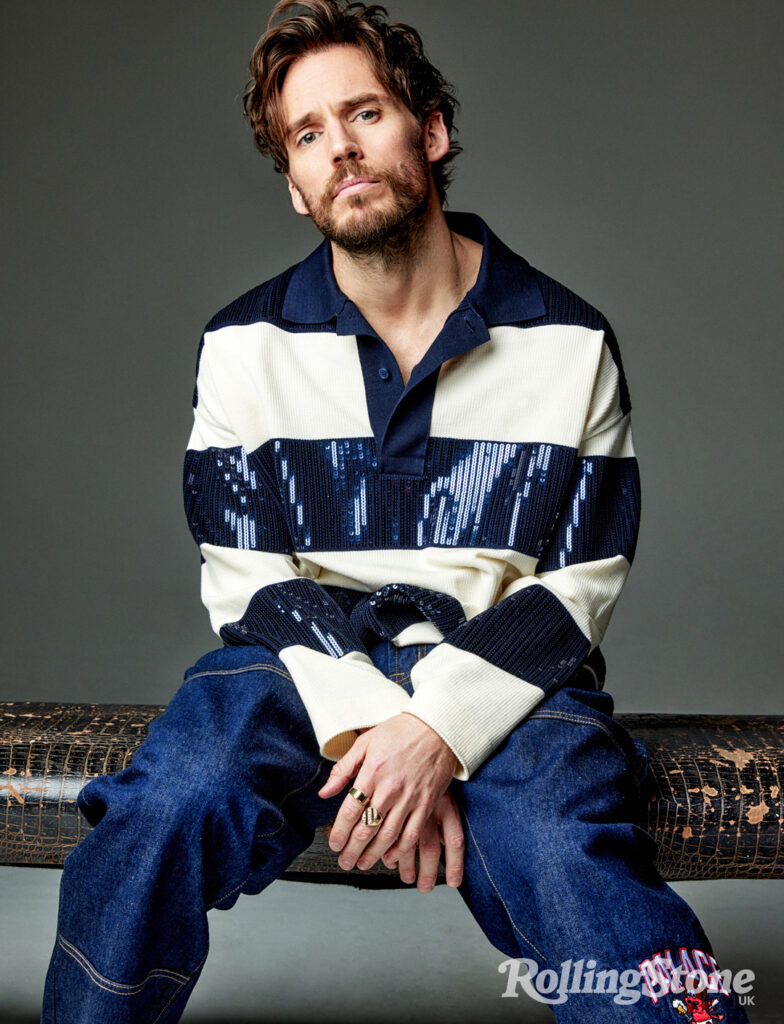
One hour in, they play ‘Silver Springs’, a tender, vengeful song written by Nicks in the mid-70s. Much to her chagrin, the song had been left off Rumours and relegated to a B-side, but now it would go on to have a second life for live album, The Dance. If anything, the two-decade marinating period had only made the song more potent. “Time cast a spell on you, but you won’t forget me,” sings Nicks in rueful tones in the final few minutes, eyes swivelling towards Buckingham with an expression that can only be described as loaded. Their eyes lock for the crescendo. “You’ll never get away from the sound of the woman that loves you.”
It was this live clip that actor Sam Claflin (Pirates of the Caribbean, The Hunger Games) found himself watching and studying in preparation for his role as Billy Dunne in Daisy Jones & The Six — a long-awaited Amazon miniseries about a fictional 70s rock band based on the Taylor Jenkins Reid book of the same name. It was also, incidentally, a clip that Reid herself had become obsessed with before writing the book. “The couple of clips from that show I saw as a teenager were why I started listening to Fleetwood Mac,” Reid told the Guardian back in 2019. “They were always, for me, more than just music. I have always been very moved by Stevie Nicks singing that song the way she
did then.”
Daisy Jones & The Six isn’t necessarily about Fleetwood Mac per se — or, at least, Claflin says, Dunne isn’t strictly based on Buckingham. Indeed, we’ll never know what went on behind closed doors, and the plot points in the TV show are obviously not reenacting real life. But it’s hard to deny the parallels between the two stories — particularly when it comes to the love-hate chemistry that simmers between Dunne and Daisy Jones, played expertly by Riley Keough, or the fact that they perform as a coked-up 70s Californian rock band whose on and off-stage tension ultimately contributes to their brilliance and downfall.
Today, Claflin, dressed in a black beanie and T-shirt, is a far cry from the flared-trousered Cali rocker he’s cast as. In his rounded British accent, he tells me that before the show he didn’t know much about 70s rock, nor being in a band more generally. “My knowledge of that world and that era is pretty limited,” he says, shrugging. “The first time I’d ever been in a recording studio was for my audition for [the show].” In it, he performed ‘Your Song’ by Elton John, “which is the most un-rock’n’roll song from the 70s you could find”. They made him perform ‘Come Together’ instead and the rest, as they say, is history.

The show itself is slowly and gradually exceptional. What starts as a fun, borderline silly, Almost Famous-style look at the 70s rock scene soon becomes an emotionally charged love story swirling with will-they-won’t-they intrigue and drama.
There are also songs — original tracks — performed by Claflin and Keough and written by a host of songwriters, including Phoebe Bridgers, Jackson Browne and Marcus Mumford, among others. In fact, they’ve released a
whole album, AURORA, available on vinyl. Rolling Stone UK spoke to Sam Claflin to find out more.
I have to say, I’ve become kind of obsessed with this show…
I felt the same way. I hadn’t watched many musical shows before or been invested in any. There was something quite unique about this. My knowledge of that era was pretty limited. Having the opportunity to explore that made me want to live it forever.
Is it all of your real voices throughout?
It is! Which is shocking to me. I came into this project having only ever done musical theatre. The first time I’d ever been in a recording studio was to audition for this. I’ll never forget being stood in Sound City Studios in LA being completely out of my depth, not knowing what was about to come my way.
Did you spend much time rehearsing as a band? Did it feel like you were a real group?
We all got cast a week before COVID. We literally arrived in LA and then COVID hit. I’d never picked up a guitar, bear in mind, so it was fucking terrifying, honestly. I was petrified about what would happen. And then lockdown happened, and it meant we were able to familiarise ourselves with the music and instruments. I had guitar lessons every day for a year and a half. So, by the time we all got back together, in June 2021, there were a few kinks to work out, but we’d had a year and a half of prepping. Then we were able to rehearse every day and familiarise ourselves with the songs. We had an opportunity to play a gig for the producers and Amazon and feel what it would be like to play as a band. We were fortunate to have the time to bond in that respect.
I would not have guessed that you didn’t know guitar beforehand…
It was very cleverly edited. I learnt how to play the songs in the show. But then they were like, “We also need you to sing, Sam.” I managed it, but always sat down, then they were like, “You need to get on your feet.” And then they were like, “Right, now you’ve got to act as well as all those other things.” That’s when the guitar-playing went out the window a bit. There was a lot to learn obviously, and by no means would I call myself a guitarist — the only things I can play are the songs from the show. But I hope to continue and get the opportunity to do it again sometime.
How else are you different from Billy Dunne? Apart from the accent.
The addiction aspect of his personality is not something I can really draw from. To have desperation, that hunger, always burning away at you… I have that for bad food, but I wouldn’t say it’s on par with drugs and alcohol [laughs]. Beyond that, it’s the ego. To think he’s the best thing since sliced bread… I can’t stand listening to my own voice or watching myself on screen, so that element of it I just can’t get on board with.
But, honestly, I’d say there were way more common threads. So much of his emotional journey I can relate to, and I think that’s quite a sad realisation in many respects. We go through many different things in our lives, and I was coming from a place, at the time, where I felt quite a lot broken and needed rebuilding in a sense and that’s the journey he predominantly goes through in this story.

How did you get into the mindset of somebody who struggles with addiction?
We had this amazing guy — a sober coach, if you will — who’d lived through the 60s and 70s and helped all sorts of people, predominantly working with musicians. He really educated me on the taboo of therapy and rehab in those days. If someone wanted to give up drugs and alcohol, no one else understood it. But I think Billy’s struggles come from other aspects as well. One of the things I relate to is his control and attention to detail. He’s a bit of a control freak and I’m similar in that respect. Not that I control people, but I control things and I think Billy’s very similar. But obviously when things start unravelling and when Daisy enters his life… he gets feelings that he’s not in control of.
How much of the story was inspired by Fleetwood Mac, for you personally?
I’ll be honest, I don’t know the full relationship journeys that they went on. As I understand it, there were a few overlapping internal relationships, which doesn’t really happen in ours. There’s obviously the chemistry between Lindsay Buckingham and Stevie Nicks, which somewhat inspires…
Daisy Jones is basically Stevie Nicks. I remember reading the book and thinking, ‘I feel like you’ve just written Stevie’ — but in such a wonderful way because she’s such a captivating character in real life as well as in the book.
Also, I think the fact it’s a band made up of men and women, and I guess the singing and songwriting aspect and the competition and maybe the songs somewhat… But I have to say I didn’t lean too much into the Fleetwood Mac story to inspire myself or as a reference. I was familiar with the making of Rumours — there was a book I read about it in the build-up, just to get an idea more of the time. One of the hardest aspects of doing this was trying to learn the language of what I’m talking about. There are certain scenes where they’d capture me and Riley writing a song and I’d be like, ‘What would I say at this point?’ I didn’t know what the language or terminology was, so I tried to read musical references to get me into the mindset.

What other books did you read?
I read a biography on Bruce Springsteen and Bob Dylan. There was The Making of Rumours. But, honestly, I spent most of my time watching live performances. There’s this incredible performance which I remember sending to Riley of Fleetwood Mac playing ‘Silver Springs’. There’s a bit where Stevie is singing about “You’ll never forget me, I’ll haunt you” and she turns to Lindsay and just stares at him. The chemistry is so palpable, it’s bubbling. It’s the most incredible performance.
Yeah, there are moments when Billy and Daisy are looking at each other on stage in this almost telepathic way and I wondered if that was based on Fleetwood Mac’s live shows.
Yeah, and the way she brushes him off… we obviously contained the whole [show] in less than 10 years and the truth of Fleetwood Mac is that this went on for decades. But yeah, I searched their live performances through the years, and there was always a different energy depending on where they were romantically. It’s the gift that keeps on giving.
The chemistry between Billy and Daisy is very believable on screen. How did you create that?
I learned to love Riley. She’s a very good friend and I trust her and adore her in a way that’s easy to draw from. It’s not romantic love, but it’s like: I admire you, you inspire me and you make me fucking laugh. She never made me want to tear my hair out, but I guess it’s just pretend, really. I genuinely learned to love her. That goes for the entire cast. Like with Cami, who plays my wife, [it was about] having to build trust and kinship. But also, there have been so many experiences in my life that I could draw from, whether it be a moment I’m angry, upset or the happiest I’ve ever been.

Billy has two big loves in the show — three if you count music. Did you have a personal view about who you wanted Billy to be with?
I think he does the right thing. Towards the end, in the last moments of the series, he’s saying to Daisy “Let’s be broken together.” That’s not healthy for anybody. They were a bad influence on each other as much as a good influence. Whereas Cami is only a good influence. And I think truly he prefers who he is when he’s with Cami. But there’s something so unique and electric but exciting and terrifying with Daisy. It’s the fear of the unknown. In truth, I think it would be dangerous territory to be with Daisy at that particular time. Were they to have met earlier, or later, maybe things would be different. But it’s also meant to be. They met each other at that time because they needed to go on this journey to figure out that they both needed to heal.
Watching it, I felt like the fact they weren’t together almost acted as a driving force. Like the ‘not having’ was more potent.
That’s where the music is. It comes from the yearning and the not having and the desperation and the hunger and the want and the desire and the lust. If you have that, it’s great.
I noticed you can order the actual album now. Do you think you’ll perform as a band?
That’s the dream. I don’t know where or when. The difficulty with six actors is that our schedules are all over the place all over the world, so the chances of that happening are quite slim — but hopefully.
It’s quite meta imagining a reunion show of a band that technically never existed.
Maybe for series two? I mean… who am I kidding? There’s a very definitive end, I think. There’s only one book. I got a message from Taylor Jenkins Reid saying thank you and she said “If there’s anything I can do, let me know” and I said “Write another one.”
